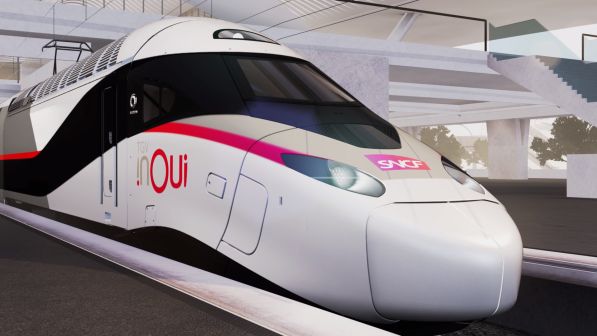Alstom also managed to increase its order backlog by 1% to €40.9bn, its Ebit margin from 7.5% to 7.7% and net income from €433m to €446m.
Alstom says the sharp drop in orders in the 2019-20 financial year, which ended on March 31, was due to its exceptional order intake in 2018-19 when it booked €12.1bn in orders driven by a contract to supply to Avelia Horizon high-speed trains to French National Railways (SNCF) and an order for metro trains for Montreal, which had a combined value of €4.3bn. Nevertheless, Alstom says its book-to-bill ratio remains strong at 1.2.
Rolling stock sales increased by 14% organically to €3.94bn, signalling sales rose by 13% organically to reach €1.49bn, but services sales fell by 6% organically to €1.47bn. Signalling and services accounted for 51% of orders in 2019-20.
Alstom says it sustained research and development spending at €302m, which is 3.7% of sales, during 2019-20.
“The end of the fiscal year was marked by the unprecedented Covid-19 crisis,” says Alstom’s chairman and CEO, Mr Henri Poupart-Lafarge. “Alstom considers the health and safety of its employees and stakeholders as its top priority during this period. We are confident in the resilience of Alstom’s business in the mid-term, given the fundamentals of the rail market and in particular, the need for greener mobility.”
Coronavirus
Alstom estimates the impact of the coronavirus pandemic on sales for 2019-20 at around €100m. Alstom put in place crisis cells at all levels of the company and an operational, commercial, cost and cash mitigation plan is being implemented. Alstom started to slowly reopen most of sites from the end of April, but a progressive alignment with its supply chain was required before a partial restart of production could commence in early May. The impact on commercial activities is being closely monitored, with a potential delay in tenders anticipated.
In addition to cash reserves of €2.17bn, and an undrawn revolving credit facility (RCF) of €400m, Alstom secured an additional €1.75bn RCF in April.
Alstom says it used 3D technology to produce face shields and valves for respirators, and donated masks and other personnel protection equipment to hospitals.
Alstom says it expects its objective of a 5% average annual growth rate up to 2022-23 to be “slightly impacted by the temporary slowdown of tender activity.” However, the company says it cannot predict the shape and timing of a recovery during 2020-21 as it depends on “the further development of the Covid-19 crisis, the duration of containment measures and the intensity of the economic downturn and market response.” However, Alstom expects “a fast recovery of the rail market” once the crisis over, sustained by strong fundamentals and the increasing demand for sustainable mobility.
Bombardier acquisition
Regarding the acquisition of Bombardier Transportation, Alstom’s unions will give their opinion in the summer. An EGM vote on the reserved capital increases to Caisse de dépôt et placement du Québec (CDPQ) and Bombardier and a rights issue should take place no later than October 31.
“Subject to EGM approval, the rights issue will take place between the second semester of 2020 and first semester of 2021, subject to market conditions, and the reserved capital increases will take place at closing,” Alstom says. “The syndication of €2.4bn of bridge facilities and a new €1.5bn RCF related to the proposed acquisition of Bombardier was completed in April 2020 as planned. The transaction will also be subject to clearance from relevant regulatory authorities and anti-trust authorities. Closing is expected in the first half of 2021.”

